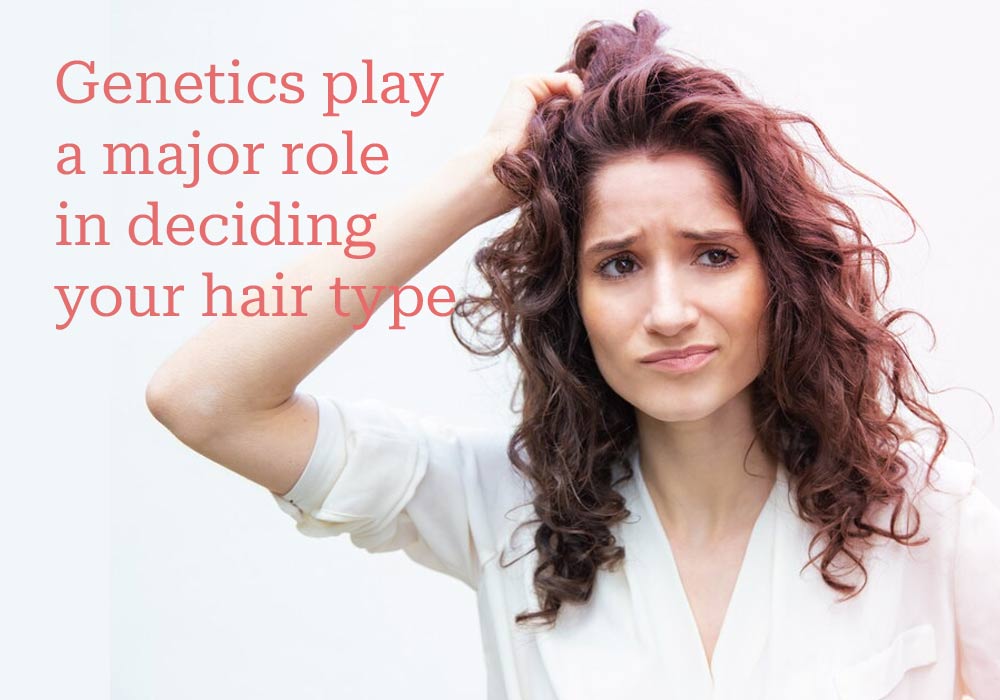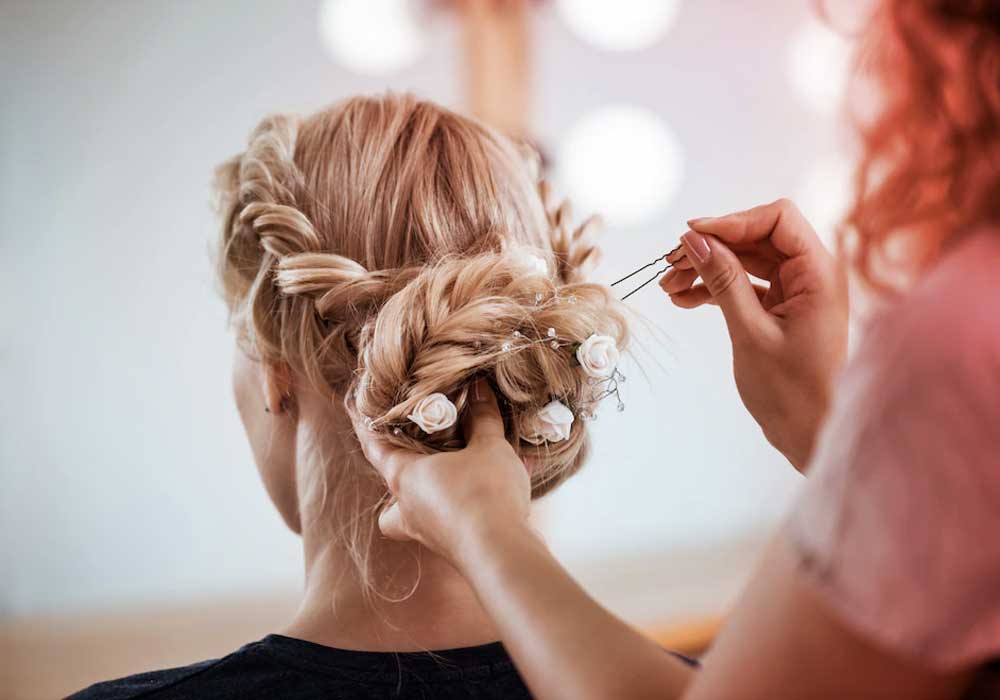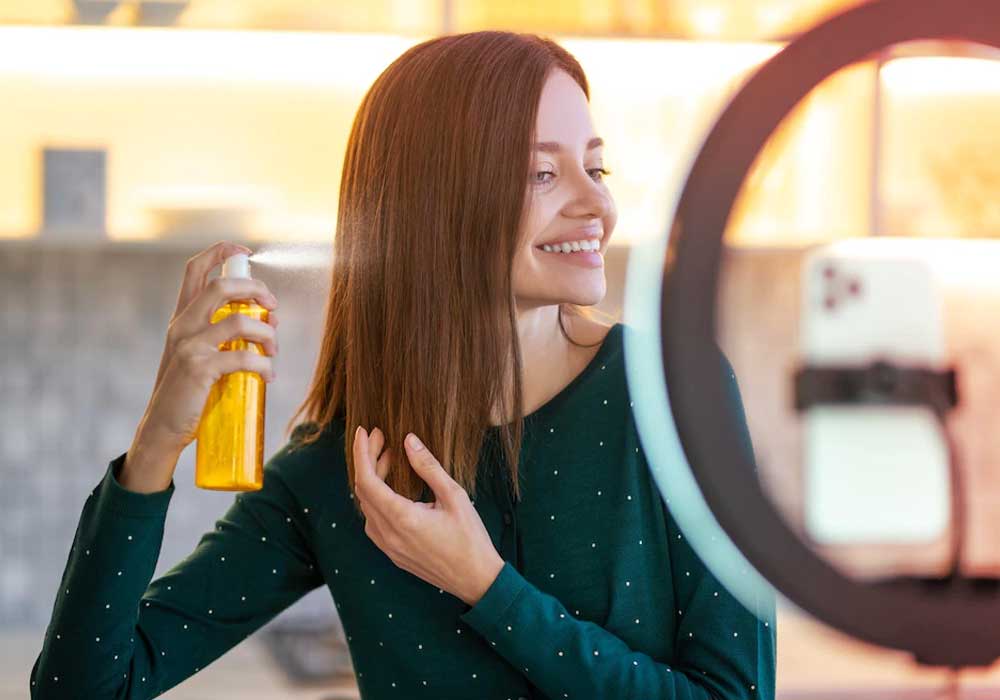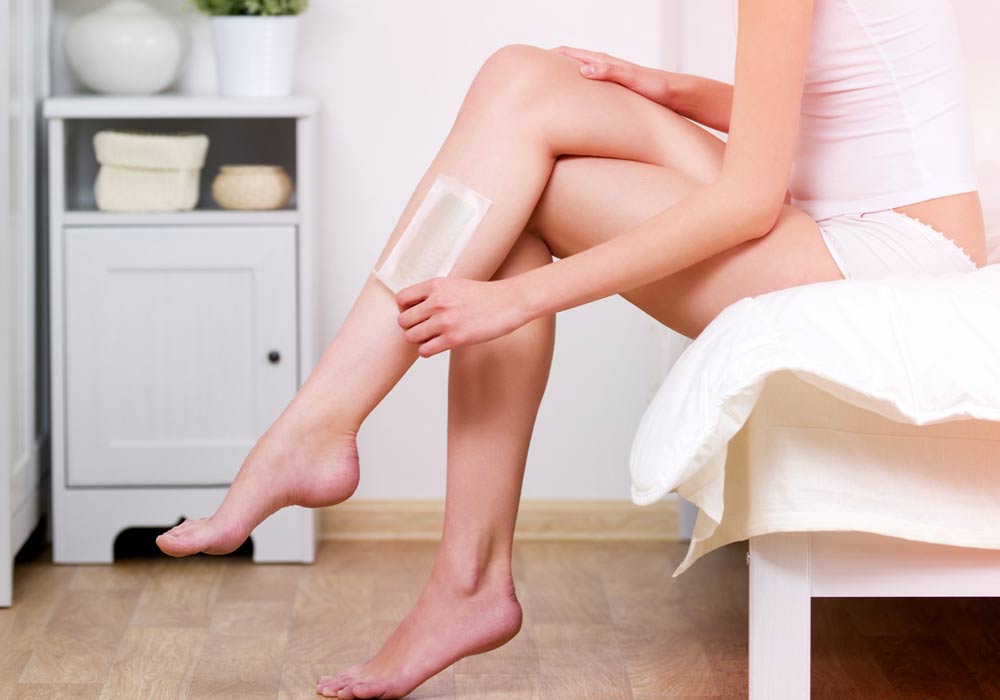Have you ever wondered why your hair curls at the ends? Perhaps you have curly hair, but the ends seem to curl differently than the rest of your hair. Or maybe you have straight hair and the ends still manage to curl up. Whatever your hair type or texture, this article will explain why your hair may be curling at the end. We’ll discuss some of the most common reasons for this phenomenon, as well as give tips on how to keep your curls in place.

Here are the Reasons Why Your Hair Curl at the End
- Genetics: Your hair’s natural curl pattern is determined by your genetics and cannot be changed. If you have naturally curly hair, it is likely that the ends of your hair will curl as well.
- Curl type: Different types of curls, such as loose curls or tight curls, may have more or less curl at the ends. For example, tight curls may have more curl throughout the hair, including at the ends, while loose curls may have less curl at the ends.
- Heat styling: Using heat styling tools, such as curling irons or straighteners, can cause the ends of your hair to curl. This is because the heat from the tools can alter the shape of the hair and cause it to curl.
- Chemical treatments: Chemical treatments, such as relaxers or perms, can alter the natural curl pattern of your hair and cause the ends to curl. These treatments use chemicals to alter the structure of the hair, which can change the way it curls.
- Humidity: High humidity levels can cause hair to absorb moisture from the air, resulting in curls at the ends. This is because the moisture in the air can cause the hair to become more pliable and more prone to curling.
- Damage: Damage to the hair, such as from heat styling or chemical treatments, can cause the ends to become more prone to curling. This is because damaged hair is more fragile and prone to breaking, which can cause the ends to curl or become frayed.
- Porosity: The porosity of your hair, or how easily it absorbs and retains moisture, can affect how your hair curls. High porosity hair, which is more prone to moisture absorption, may be more prone to curling at the ends.
- Hair length: Longer hair may be more prone to curling at the ends due to the weight of the hair pulling down on the curls. This can cause the curls to become looser and less defined, resulting in curling at the ends.
- Hair texture: Fine or thin hair may be more prone to curling at the ends due to the lack of weight and support. This is because the hair does not have enough weight to hold the curls in place, resulting in curling at the ends.
- Product buildup: Using too much product or using products that are not compatible with your hair type can cause the ends to curl. This is because the excess product can weigh down the hair and cause the curls to become looser and less defined.
- Lack of moisture: Dry hair is more prone to curling due to a lack of moisture, so it is important to regularly moisturize your hair to prevent curling at the ends. This is because moisturized hair is more supple and less prone to curling.
- Age: As we age, our hair tends to become drier and more prone to curling, so it is common for the ends to curl as we get older. This is because the hair’s natural moisture levels tend to decrease with age, making it more prone to curling.
- Diet: A poor diet or lack of certain nutrients can affect the health and appearance of your hair, including causing the ends to curl. This is because the hair requires a range of nutrients, such as proteins, vitamins, and minerals, to maintain its strength and health. A deficiency in any of these nutrients can cause the hair to become weak and more prone to curling.
- Stress: High levels of stress can alter the natural growth patterns of your hair and cause the ends to curl. This is because stress can affect the body’s hormone levels, which can in turn affect the hair’s growth and appearance.
- Medical conditions: Certain medical conditions, such as hormonal imbalances or autoimmune disorders, can affect the health and appearance of your hair, including causing the ends to curl. This is because these conditions can alter the body’s hormone levels or disrupt the hair’s natural growth cycle, resulting in changes to the hair’s appearance.
- Hair care routine: Inconsistent or improper hair care practices, such as using harsh shampoos or neglecting to deep condition, can cause the ends of your hair to curl. This is because improper hair care can damage the hair and cause it to become dry and brittle, which can lead to curling at the ends.
- Environmental factors: Exposure to environmental factors, such as wind, sun, and pollution, can affect the health and appearance of your hair, including causing the ends to curl. This is because these factors can damage the hair and cause it to become dry and brittle, leading to curling at the ends.
- Heat protectant: Not using a heat protectant when heat styling your hair can cause the ends to become damaged and more prone to curling. This is because the heat from the styling tools can damage the hair and cause it to become dry and brittle, leading to curling at the ends.
- Split ends: Split ends can cause the ends of your hair to curl and become more prone to tangles and knots. This is because the damaged ends of the hair are more prone to breaking and curling, resulting in a frayed appearance.
- Lack of trimming: Not trimming your hair regularly can cause the ends to become damaged and more prone to curling. This is because the damaged ends of the hair are more prone to breaking and curling, resulting in a frayed appearance.
- Overuse of hair ties: Using hair ties or other hair accessories too frequently or too tightly can cause the ends of your hair to curl. This is because the hair ties can cause tension on the hair and cause it to become damaged and more prone to curling.
- Curling products: Using products specifically designed to enhance curl, such as curl creams or gels, can cause the ends of your hair to curl. This is because the products can help to define and enhance the curls, resulting in more curl at the ends.
How do I Stop My Hair from Curling at the End?
Here are a few tips that may help to prevent your hair from curling at the ends:
- Use a moisturizing shampoo and conditioner: Using a moisturizing shampoo and conditioner can help to keep your hair hydrated and prevent it from becoming dry and brittle, which can lead to curling at the ends.
- Use a leave-in conditioner or hair oil: Applying a leave-in conditioner or hair oil can help to keep your hair moisturized and prevent it from becoming dry and prone to curling.
- Avoid heat styling: Using heat styling tools, such as curling irons or straighteners, can cause the ends of your hair to curl. If you do need to use heat styling tools, make sure to use a heat protectant to minimize damage and prevent curling at the ends.
- Avoid chemical treatments: Chemical treatments, such as relaxers or perms, can alter the natural curl pattern of your hair and cause the ends to curl. If you do need to use these treatments, make sure to follow the instructions carefully and use a deep conditioner afterward to minimize damage and prevent curling at the ends.
- Avoid environmental damage: Exposure to environmental factors, such as wind, sun, and pollution, can damage your hair and cause it to become dry and brittle, leading to curling at the ends. To minimize environmental damage, try using a leave-in conditioner or hair oil, and protect your hair with a hat or scarf when outside.
- Trim your hair regularly: Trimming your hair regularly can help to remove damaged ends, which can prevent curling at the ends. Aim to trim your hair every 6-8 weeks to keep the ends healthy and prevent curling.
- Avoid overusing hair ties: Using hair ties or other hair accessories too frequently or too tightly can cause the ends of your hair to curl. To minimize this, try to avoid using hair ties or opt for hair ties that are gentle on the hair.
- Use the right hair care products: Using products that are not compatible with your hair type can cause the ends to curl. To prevent this, make sure to use products that are formulated for your hair type, and avoid using too much product to prevent build-up.
Why is half my hair straight and half curly at the same time
If half of your hair is straight and half is curly at the same time, it is likely that you have a naturally mixed curl pattern, also known as 3C/4A hair. This means that you have a mix of different curl patterns on your head, with some parts being straight and some being curly. This type of curl pattern is common and is determined by genetics.
Conclusion
In conclusion, hair that curls at the ends is a common occurrence that can be attributed to a variety of factors, including genetics, hair care practices, and environmental conditions. While some people may prefer straight hair, others embrace their curls and waves. Understanding the science behind hair curling can help individuals better care for and style their hair. Whether you choose to straighten or enhance your curls, it’s important to maintain a healthy hair care routine and protect your hair from damage. By doing so, you can enjoy beautiful, healthy hair that looks and feels great.

Hi, I’m Annie,
What drives me is the ability to empower women by cultivating the self-confidence in their inner beauty, enhancing their self-image, and showing them that overall beauty needn’t be either difficult or costly and that they can seamlessly mould their style to suit their everyday needs, without having to make an either / or choice. I’m constantly surprised at every transformation and it drives me on to the next. My knowledge is enhanced by 18 years of hands-on experience, and learning from every new assignment.
When I’m not writing beauty advice for my blog, I’m consulting on make-up, hair, diet and style. Or I’m just kicking back my heels cuddling with my fat Lab, Coco.


